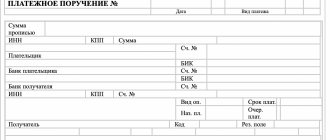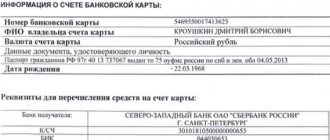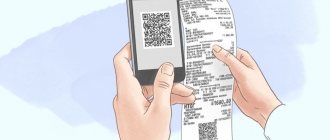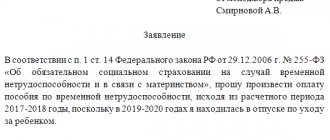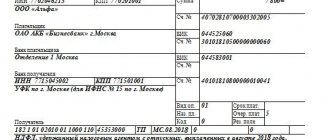New rules
The law that defines the principles and procedure for state control and supervision (Law No. 248-FZ dated July 31, 2020) came into force on July 1, 2021. Then they began to systematically change regulations to bring them into compliance with this law. The turn has come to 54-FZ: the new edition states that control and supervision of the use of cash register systems from March 1, 2022 will be regulated by Law No. 248-FZ (amendments to Article 7 No. 54-FZ were made by Law dated June 11, 2021 No. 170 -FZ).
The new inspection rules have already been posted on the state portal of regulatory acts. So what will replace scheduled business inspections?
Responsibility under the Code of Administrative Offenses
Responsibility for non-use of CCP is established in Part 2 of Article 14.5 of the Code of Administrative Offenses of the Russian Federation (CAO RF). Under this article, a company (entrepreneur) may be fined for not using a cash register and for using a cash register that does not meet established requirements or is used in violation of the procedure and conditions for its registration and use established by the legislation of the Russian Federation. The same rule applies if a company or entrepreneur is obliged to issue, at the request of the buyer (client), a document confirming the receipt of funds (sales receipt, receipt), but refuses to do so. These violations are punishable by a warning or a fine. The fine is:
· for a company – from 30,000 to 40,000 rubles;
· for officials or entrepreneurs – from 3,000 to 4,000 rubles;
· for other employees of the company (for example, a cashier) – from 1500 to 2000 rubles.
The Supreme Arbitration Court (resolution of the Plenum of the Supreme Arbitration Court dated July 31, 2003 No. 16) allowed fines under this article if:
· the company uses a cash register that is not registered with the tax office (Articles 4 and 5 of the Federal Law of May 22, 2003 No. 54-FZ);
· the company uses cash registers without fiscal memory, with fiscal memory in non-fiscal mode, or with a failed fiscal memory unit;
· the organization uses a cash register that does not have a seal or it is noticeable that the seal is damaged;
· The cashier punches a check for a smaller amount than the buyer paid him.
According to Article 14.5 of the Code of Administrative Offenses of the Russian Federation, tax authorities can fine you even if the cash register is faulty.
According to the Regulations on the use of cash registers when making cash settlements with the population (approved by Resolution of the Council of Ministers - Government of the Russian Federation dated July 30, 1993 No. 745), a cash register is considered faulty if:
· does not print, prints illegibly or does not completely print the required details on the check;
· does not print, prints illegibly or does not completely print the control tape or other documents provided for by the technical requirements for cash registers and their fiscal (control) memory;
· does not perform or performs with errors the operations provided for by the technical requirements for cash registers and their fiscal (control) memory;
· does not allow obtaining data contained in the fiscal (control) memory necessary for control by the tax authority;
· uses application programs that are not approved by the State Interdepartmental Expert Commission of KKM.
It is also established there that the operating rules for cash register machines may also provide for other faults, in the presence of which the specified machines should not be used.
note
If cash was accepted bypassing the cash register and was not entered into the cash register, tax authorities may fine the company or entrepreneur under one of two possible articles: 15.1 or 14.5 of the Code of Administrative Offenses of the Russian Federation.
Article 15.1 of the Code of Administrative Offenses of the Russian Federation establishes liability for violation of the procedure for working with cash and the procedure for conducting cash transactions. This is a different responsibility and other violations. Accordingly, they are the subject of other non-tax audits by the tax inspectorate.
These violations are associated with cash settlements with other organizations in excess of the established amounts, non-receipt (incomplete receipt) of cash in the cash register, non-compliance with the procedure for storing available funds and the accumulation of cash in the cash register in excess of established limits. For these violations, an administrative fine is imposed on officials in the amount of 4,000 to 5,000 rubles; for legal entities - from 40,000 to 50,000 rubles.
note
If a company or entrepreneur uses other cash register equipment instead of cash registers (for example, electronic computers, software computers, software and hardware systems), then tax authorities have no right to hold them accountable for not using cash register machines.
Prevention of violations
The following preventive measures to prevent violations come to the fore:
Informing
Inspectors will provide businesses with up-to-date information regarding the use of online cash registers. That is, they will notify about new regulations, clarifications, letters, etc.
Information will be brought to the attention of businesses through publications on the Federal Tax Service website and in the media, and by launching mailings to personal accounts of cash register companies.
The new procedure for maintaining the cash register account, which will also come into force on March 1, 2022, was approved by the Federal Tax Service by order dated September 8, 2021 No. ED-7-20/ [email protected]
Generalization of law enforcement practice
Tax officials will annually, no later than March 1, compile a report in which they will collect official interpretations of controversial legislative norms.
Business representatives will be able to put them into practice without fear of fines.
Announcement of caution
The tax service will remotely analyze business performance based on sales information received through the OFD. Compare the data received by the Federal Tax Service with the data of fiscal data operators. That is, conduct remote control. If inspectors decide that an entrepreneur is violating the provisions of the law, he will be given a warning.
For example: during peak hours at a store, the number of checks being punched drops - there is reason to suspect that trade is going past the cash register. Tax officials will issue a warning to the store.
If a businessman considers that the warning was issued unreasonably, he has the right to file an objection. Documents confirming that there was no violation are attached to the objection. This will need to be done within 15 days. The tax authorities will provide a response within 10 days from the date of application.
In your personal account on the OFD Platform, you can always check whether checks have been sent to the Federal Tax Service, whether they comply with the required formats, and correct errors before inspectors discover them.
Consulting
Any entrepreneur will have the right to receive advice from inspectors:
- by phone;
- at a personal reception;
- during surveillance or preventive measures.
If the Federal Tax Service receives more than 10 requests of the same type, the tax service will post explanations on such issues on its portal.
Preventative visit
This is a visit by inspectors to a place of business activity. Moreover, a preventive visit can be not only personal, but also remote. That is, it is carried out in the form of a conversation via video link .
Preventive visits will be allowed once every three years . Inspectors will have the right to visit the site for the first time immediately after the opening of the business and registration of the cash register.
Inspectors are required to notify of their intention to visit the place of business at least 5 working days in advance. A businessman has the right to refuse a visit by notifying the tax authorities no later than 3 days before the start of the visit.
During the visit, inspectors will only have the right to observe, record violations and issue recommendations. They will not be able to issue fines . However, if violations are recorded, the business faces an unscheduled inspection.
Using OFD
Checking the authenticity of a check online can be done using the OFD, through which the seller transmits fiscal data to the Federal Tax Service. To confirm the authenticity, you must go to the OFD website, which is written on the check. If the data is transmitted via Astral.OFD, then verification is carried out using the link; in the empty fields you must enter FPD, FD, FN. Checking the cash receipt is a guarantee that the entrepreneur conducts his business legally and reports data on all his sales to the Federal Tax Service.
To transfer fiscal data to the Federal Tax Service, we recommend using “Astral.OFD”. This is an online service that sends fiscal information to the tax authority in accordance with the requirements of 54-FZ.
Unscheduled inspections
Tax officials will not warn businesses about unscheduled audits. The new rules list several options for such control and supervisory measures.
Test purchase
During the procurement, inspectors have the right to perform the following actions: inspection and experiment.
The purchase will be carried out in the presence of two inspectors (except for situations where the purchase is carried out remotely). That is, according to the new rules, inspectors will be able to control the use of cash registers in online trading.
Evotor digital cash registers for an online store. The OFD Platform service is already included in the kit.
Documentary verification
During the inspection, inspectors will have the right to: demand documents, receive written explanations, and conduct an examination.
The verification period cannot exceed 10 days . However, if inspectors request documents and give a deadline for their submission, then the waiting period: from the date of the request to the date the businessman submits the documentation will not be included in the inspection period. Likewise, if inspectors find inconsistencies in the submitted documents and request clarifications, then the period from the moment of the request to the date of presentation of the clarifications will also not be included in the inspection period.
Documentary verification can also be carried out remotely through your personal account.
Compliance Monitoring
Surveillance means the collection of any information from open sources about the activities of an entrepreneur.
For example: in reviews of a store on the Internet, customers complained that they were not given receipts. This information fell into the hands of the tax authorities, who ordered an unscheduled inspection of the store.
Work according to the rules with the OFD Platform: register cash registers, transfer checks to the Federal Tax Service, check them for errors, receive analytics on business development.
On-site examination
As part of an on-site inspection in publicly accessible places (open to visit by an unlimited number of people), inspectors will have the right to conduct an inspection and take samples (samples).
Inspectors will be able to carry out sampling (samples) only in the presence of the controlled person or his representative. Moreover, the process will need to be recorded on video .
If inspectors have suspicions that a business is violating the procedure for using CCP, they have the right to immediately conduct a test purchase.
Moreover, they do not need a decision from their superiors or approval from the prosecutor’s office to conduct a test purchase.
Important: from March 1, 2022, the tax service has the right to carry out control and supervisory measures at the location of the entrepreneur (place of installation of the cash register), including residential premises.
Recording violations and taking photographs
To record the presence of violations, inspectors will have the right to take photographs, make video and audio recordings.
Photography will be used to record violations during the inspection.
If it is impossible to clearly identify a violation using a photograph, the inspector will have the right to make a video recording .
In addition, video and audio recordings will be used for:
- conducting a survey (with the written consent of the controlled person);
- the businessman’s refusal to give written explanations if he agreed that his explanations would be recorded in this way.
The device that inspectors will use must have certain technical capabilities:
- fixing the date and time of shooting (recording);
- saving data about the shooting location (coordinates).
All materials received by inspectors (photos, video and audio recordings) will be annexed to the inspection report.
Inspection results and their appeal
After each unscheduled inspection the following will be calculated:
- act of control and supervisory action,
and if violations are recorded, they will be reflected in
- order to eliminate violations.
The order will indicate the actions that the entrepreneur must take to eliminate the violations and the time frame within which this must be done.
If an entrepreneur does not agree with the tax authorities’ decision, he can file a complaint . It must be reviewed within 20 working days, but the businessman may be asked for documents or additional information about the subject of the complaint. The deadline for their submission is 5 days.
What should a business do?
At first glance, it seems that the presence of tax officials in the daily life of the trading business will decrease. But you need to understand that control has not gone away. Technology simply makes business more and more transparent and allows controllers to track a lot of indicators without leaving their workplace.
It is important not to neglect the correct and timely execution of cash transactions. If for some reason the operation took place outside the cash register, you need to generate correction checks on time. Pay attention to the required check details. Don't underestimate your revenue. Any buyer can now leave an online complaint, which may result in an unscheduled inspection.
The clearer and more correct your business looks in the eyes of the tax authorities, the less losses you will incur from penalties. After all, the best test is the one that doesn’t take place.
You will find all the information about fines for online cash registers in this article.
Checking a receipt using a QR code
Checking checks online using a QR code is carried out through the Federal Tax Service mobile application. You can download the application on Google Play and App Store. You need to install the application on a gadget that has a built-in camera.
Important! When downloading, pay attention to the specified seller. It should be the Federal Tax Service of Russia. In other cases, these are attackers who are trying to steal confidential data.
To check a receipt online using a QR code, you need to perform the following algorithm:
- Launch the application on your mobile device after installation.
- Prepare a cash receipt for verification.
- Select the “Check receipt” item from the menu.
- After clicking in the application, the camera is activated.
- Point the camera at the QR code indicated on the receipt. Manual data entry is also allowed.
- The application scans the encrypted data, verifies it and displays the verification result on the screen.
If the check is valid, an electronic copy of it can be obtained by clicking on the appropriate button. If the check does not pass verification, the user can send a complaint to the Federal Tax Service.
To compare the details of paper and electronic copies of documents, go to the “My Receipts” section.
The application also generates the user’s personal QR code. This function is needed to instantly read client contacts. The buyer shows this code in the store when he wants to receive an electronic receipt. The cashier scans the image and sends payment information to the provided phone number or email. The personal QR code is located on the main page of the application in the “Business Card” section.


